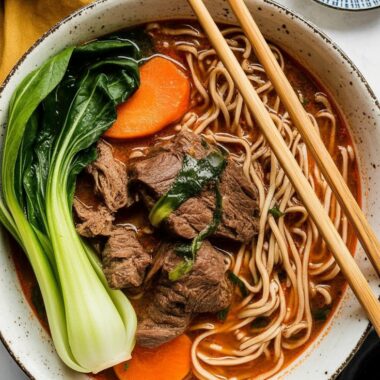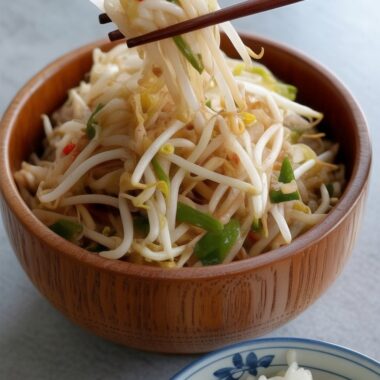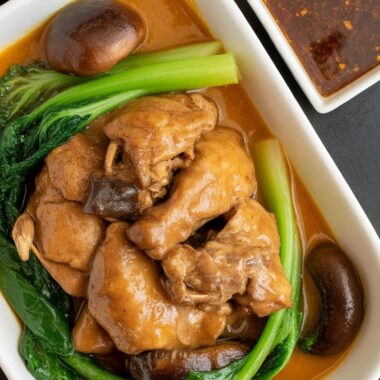This Korean BBQ marinade is one of those recipes I keep coming back to—partly because it takes five minutes to whisk together, but mostly because the flavor is just that good. It’s got the perfect mix of savory, sweet, spicy, and umami, and it clings beautifully to anything from chicken thighs to tofu cubes.
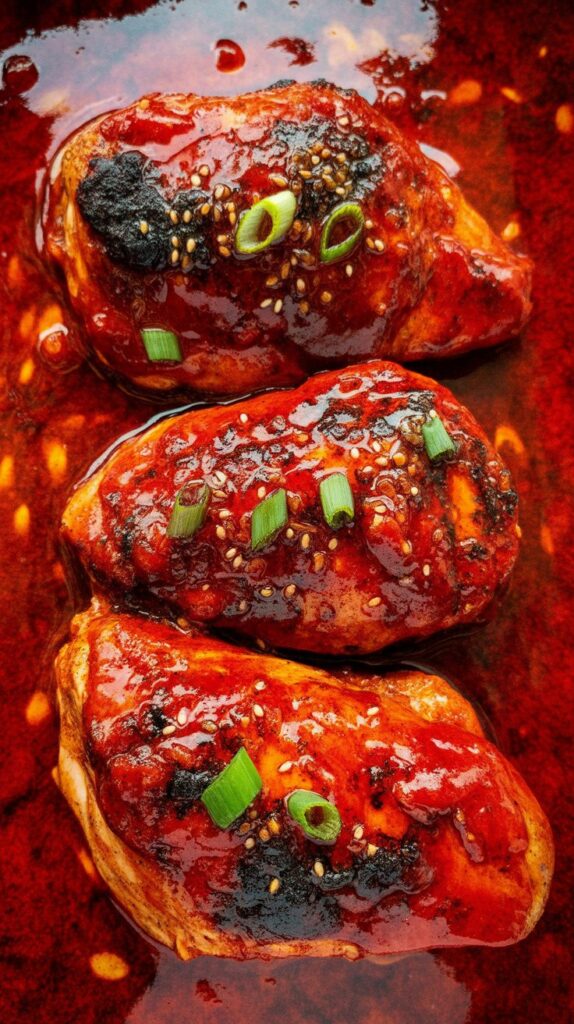
I first started messing around with this kind of marinade after a late-night Korean BBQ dinner out with friends. The next day, I was determined to get that smoky, spicy-sweet flavor at home without firing up a full grill setup. After a few rounds of testing, this version stuck. Now, it’s my weeknight go-to for a flavor-packed dinner—especially when I’ve got random cuts of meat or tofu that need a little love.
Let’s Talk Gochujang (Don’t Skip This)
If you’ve never cooked with gochujang, let me just say—get a tub. Or a squeeze bottle. Once you taste it, you’ll want to use it in everything from marinades to dressings to spicy mayo.
It’s a Korean fermented chili paste made with red pepper powder, glutinous rice, soybeans, and salt. What makes it special is the balance—it starts off sweet, then brings in a gentle heat that builds without overpowering. And it’s what gives this marinade its signature depth and color.
I keep mine in the fridge and go through it faster than ketchup. No kidding.
All the Ways to Use This Marinade
You’ve got options, and lots of them. Here are a few ways I’ve used this marinade in my own kitchen:
- Chicken thighs or drumsticks – My weeknight MVP. Marinate, bake, done.
- Beef short ribs or flank steak – Grill or broil these for that restaurant-style char.
- Pork belly or tenderloin – Sweet and fatty cuts soak this up like a sponge.
- Salmon or shrimp – Just a short marinade time, and then pan-sear or broil.
- Tofu – Press it first, then marinate overnight. It gets wonderfully flavorful.
- Noodles or stir-fry veggies – You don’t even need to marinate—just toss it in like a sauce.
I’ve even added a spoonful of this to ground meat while cooking it—kind of like a shortcut bulgogi situation. No marinating needed, just big flavor fast.
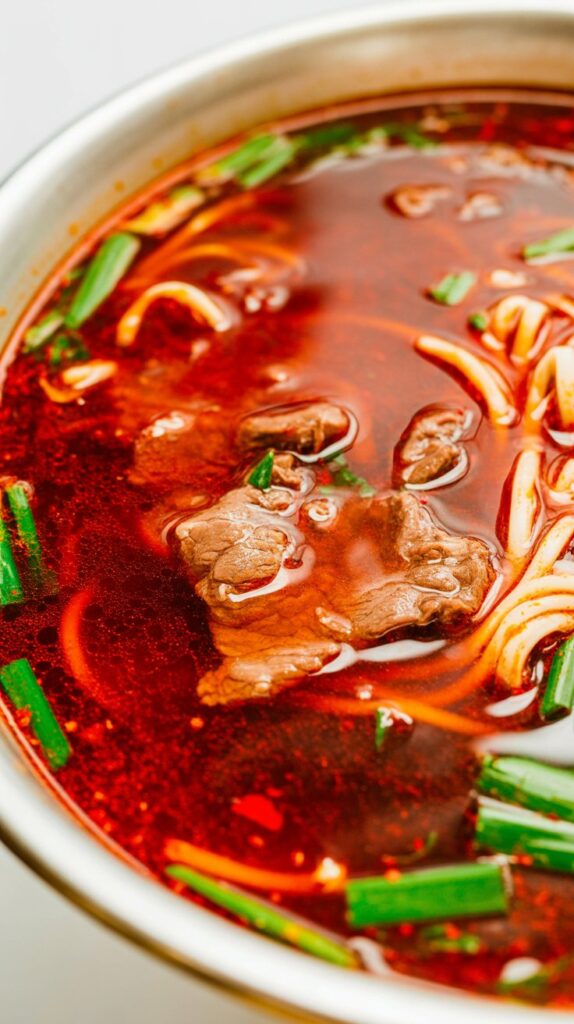
Smart Tips from My Kitchen
Here are a few small tweaks that make a big difference:
- Ginger paste > ginger powder: I used to use powdered ginger when I was in a pinch, but fresh ginger or even store-bought ginger paste brings out way more fragrance and punch. Worth the extra step.
- Low-sodium soy sauce + a pinch of salt: I like having control over the salt levels. If you’re using regular soy sauce, you might want to skip the added salt and do a quick taste before adjusting.
- Don’t skip the gochujang: This is the backbone of the flavor. Sriracha won’t give you the same depth. You can usually find it in the international aisle at most grocery stores these days—or just grab it online once and keep it in the fridge.

FAQs I’ve Been Asked a Bunch
Can I prep this marinade ahead of time?
Absolutely. I usually whisk up a batch and keep it in a mason jar in the fridge. It’ll stay good for about a week. I’ve even frozen it in ice cube trays and used a cube or two when I’m making a small portion.
How long should I marinate?
For meats like chicken or beef, I aim for at least 30 minutes—overnight if I have the time. For seafood, 15 minutes is plenty. Tofu soaks it up best when marinated a few hours or overnight. Don’t go overboard with fish—it can break down.
Why does this recipe say brown sugar or honey?
Both work great. Brown sugar adds depth from the molasses, and honey brings a more floral sweetness. I usually go with whatever I have on hand. If I’m grilling, I lean toward honey for that extra caramelization.
Korean BBQ Marinade
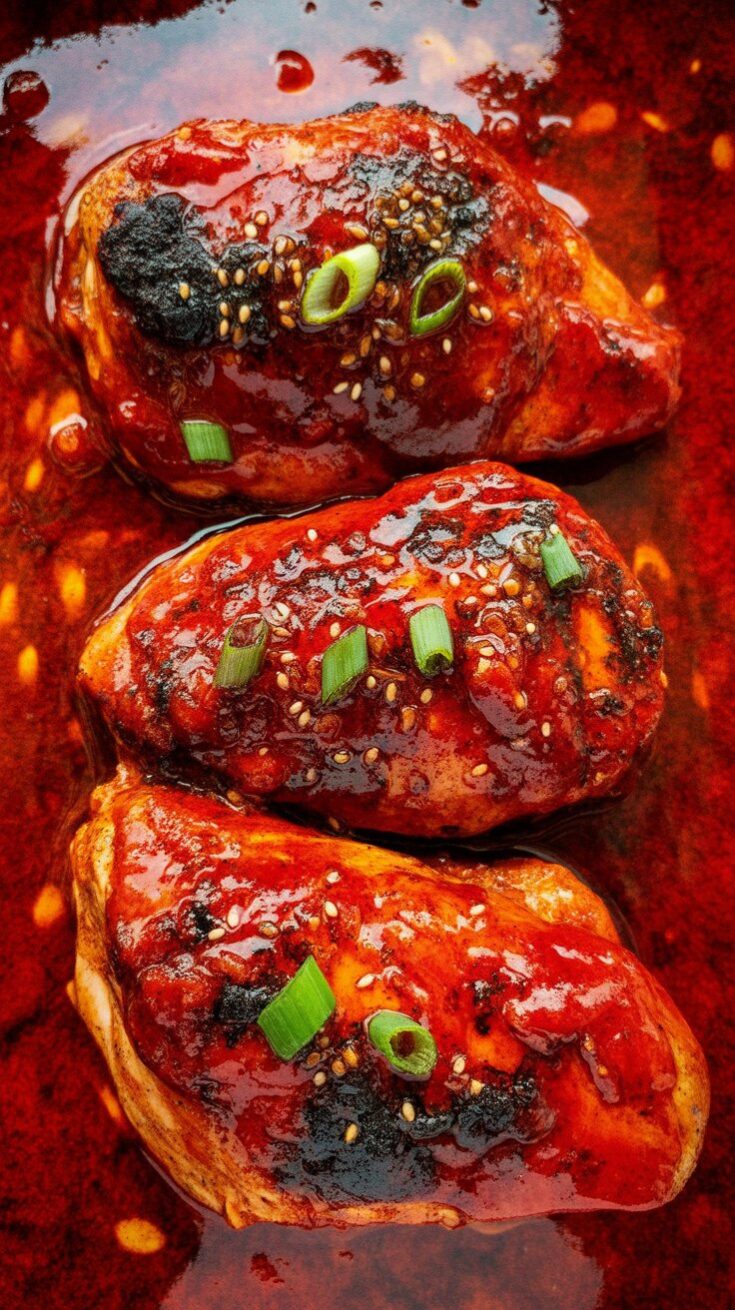
This bold and savory Korean BBQ marinade comes together in minutes and brings an irresistible kick to just about anything you’re cooking.
Ingredients
- ¼ cup gochujang sauce
- ¼ cup low-sodium soy sauce
- 2 tablespoons rice vinegar
- 2 tablespoons brown sugar or honey (or use a brown sugar substitute)
- 1 tablespoon sesame oil
- 1 tablespoon ginger paste or 1 teaspoon ground ginger
- 4 garlic cloves, minced
- 1 teaspoon coarse salt
- 1 teaspoon onion powder
- ½ teaspoon ground black pepper
- Optional: ¼ cup sliced green onions for extra freshness
Instructions
- Start by grabbing a mixing bowl large enough to whisk everything together. Add the gochujang, soy sauce, vinegar, brown sugar (or honey), sesame oil, garlic, ginger, onion powder, salt, and black pepper. Whisk until smooth and well combined.
- If you're using green onions, stir them in at the end for a burst of freshness.
- You can use the marinade right away or store it in the fridge in a sealed container for up to 4 days. It works beautifully on chicken, beef, shrimp, tofu, salmon—really anything you’d want to sizzle up with some Korean flair.
Notes
- Chicken Breasts: Marinate for 30 minutes to 4 hours, then grill, bake, or pan-sear until cooked through.
- Steak: Let soak for up to 4 hours for deep flavor. Grill or pan-cook to your preferred doneness.
- Shrimp: Just 15–30 minutes is plenty. Sauté quickly and spoon some of that marinade over top.
- Salmon Filets: Marinate 15–30 minutes and sear until tender and flaky.
- Tofu: Press out moisture first. Marinate up to 4 hours and then pan-fry until golden.
Nutrition Information:
Yield: 2 Serving Size: 1Amount Per Serving: Calories: 342Total Fat: 10gSaturated Fat: 1gTrans Fat: 0gUnsaturated Fat: 8gCholesterol: 1mgSodium: 4291mgCarbohydrates: 60gFiber: 3gSugar: 42gProtein: 6g
Asianplated.com, occasionally offers nutritional information for recipes contained on this site. This information is provided as a courtesy and is an estimate only. This information comes from online calculators. Although allchickenrecipes.com attempts to provide accurate nutritional information, these figures are only estimates.
Final Thoughts
This Korean BBQ marinade is one of those recipes that quietly earns a permanent spot in your rotation. It’s simple, bold, and flexible—and once you’ve made it a few times, you’ll find yourself reaching for it instinctively whenever you’ve got a protein to marinate or a stir-fry that needs a lift.
If you’ve never cooked with gochujang before, this is the perfect place to start. It’ll hook you. And if you already love Korean flavors, this one’s a no-brainer. Make a double batch—you’ll thank yourself later.
Try other Korean recipes:

